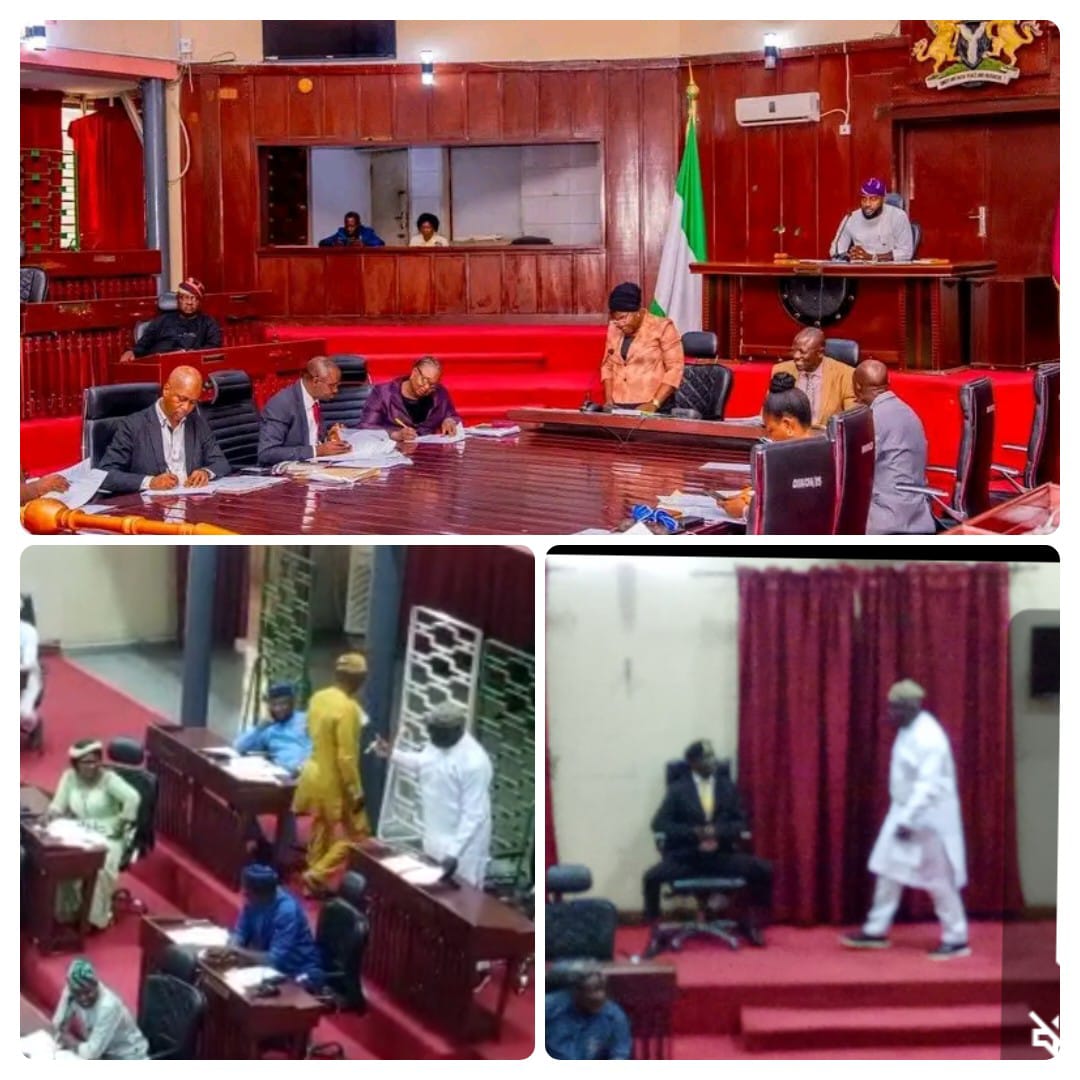…Hons. Gbenga Oyekola, Olorunpoto Stage Walkout During Plenary
The Oyo State House of Assembly has passed the Oyo State Council of Obas and Chiefs (Further Amendments) Bill, 2025 into law.
This follows the third reading and adoption of the report by the House Committee on Local Government, Chieftaincy Matters, and State Honours.
The bill was passed during Tuesday’s plenary session after the Vice Chairman of the Committee, Hon. Bamidele Adeola, presented its final report.
The newly amended legislation retains the rotational chairmanship system, allowing leadership of the Council to alternate every two years among the state’s top three traditional rulers namely the Alaafin of Oyo, Olubadan of Ibadanland, and Soun of Ogbomoso.
According to the House, the rotation is designed to promote unity and balanced representation within the traditional leadership structure of Oyo State.
The House also approved the expansion of the Council’s membership from 35 to 41. The newly added members including the Olu of Igboora, Onilala of Lanlate, and the Alado of Ado-Awaye.
According to Speaker of the House, this expansion aims to ensure greater inclusivity and wider regional representation within the Council of Obas and Chiefs.
In addition to chairmanship rotation, the amended bill also introduces deputy and vice chairmanship roles to enhance the Council’s administrative structure.
As regards the revised Schedule II, the Eleruwa of Eruwa, Olugbon of Orile-Igbon, and Aseyin of Iseyin are among the traditional rulers designated for deputy chairmanship positions.
Despite the majority’s support for the bill, the plenary witnessed a dramatic turn as Hon. Gbenga Oyekola (Atiba state constituency) and Hon. Rahman Olorunpoto (Oyo East/West state constituency) staged a walkout in protest during the session.
Their objections were based on perceived ‘ridicule’ of the Alaafin stool which they argued, can not be alternated with any other monarch.
The Speaker of the House, Rt. Hon. Adebo Ogundoyin, in his remarks, emphasized that the passage of the bill marks a critical step toward strengthening traditional governance in the state.
“This bill enhances the operational framework of the Council, promotes unity among traditional rulers, and affirms our commitment to preserving the state’s rich cultural heritage,” Ogundoyin stated.

